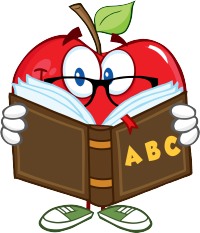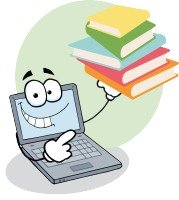Classical Homeschooling Method
Classical homeschooling method is an age-old educational approach that unfolds in three distinctive stages: the Grammar Stage, the Logic Stage, and the Rhetoric Stage. Each stage serves as a building block, shaping students into well-rounded individuals.
The Grammar Stage:
The Grammar Stage, covering early years to around fourth grade, is the foundation phase. Kids become knowledge collectors, soaking up facts like sponges. Teachers, often parents in homeschooling, play a pivotal role in guiding children through various subjects using rhymes, songs, and games.
The Logic Stage:
Moving into the Logic Stage (grades 5 to 8), students transition from collectors to detectives. They start questioning the "why" and "how" behind the facts, developing critical thinking skills. Subjects become platforms for exploration, and teachers guide them through the maze of reasoning.
The Rhetoric Stage:
The grand finale, the Rhetoric Stage, typically spanning high school years, is the culmination of classical homeschooling. Here, students transform into skilled communicators, weaving words with finesse and persuasion. Teachers become mentors, guiding students in the art of effective communication.

Advantages of Classical Homeschooling Method:
Classical homeschooling boasts several advantages. It lays a solid foundation of knowledge, cultivates critical thinking skills, and emphasizes effective communication. This method is time-tested, adaptable to different teaching styles, and prepares students for higher education. It also fosters an appreciation for tradition and virtue.
Solid Foundation and Critical Thinking:
The Grammar Stage focuses on building a rock-solid knowledge base. Students, in their early years, become enthusiasts for facts, creating the groundwork for future learning. Transitioning into the Logic Stage, critical thinking takes center stage, as students begin connecting the dots and understanding the underlying reasons behind the information.
Effective Communication and Language Arts:
The Rhetoric Stage elevates students into eloquent communicators. They not only accumulate knowledge but can express and persuade effectively. Throughout all stages, classical education places a strong emphasis on language arts, molding students into skilled writers and speakers.
Holistic Learning and Adaptability:
Classical education weaves subjects together, emphasizing connections between history, science, literature, and more. This holistic approach provides students with a well-rounded understanding of the world. Moreover, classical homeschooling is adaptable, catering to diverse teaching styles and the individual needs of learners.
Cultivation of Virtue and Preparation for Higher Education:
Classical education goes beyond academics, often including the study of virtues and character development. It nurtures good citizens with strong moral character. Additionally, the skills acquired through classical homeschooling serve as an excellent preparation for higher education, with colleges appreciating the critical thinking and effective communication skills of students from this background.
Appreciation for Tradition:
Finally, classical education introduces students to the wisdom of the past. It fosters an appreciation for classical literature, historical events, and cultural traditions. This not only enriches their educational experience but also shapes them into individuals with a broader worldview.
In essence, classical homeschooling is a comprehensive educational journey that equips students with knowledge, critical thinking abilities, and effective communication skills. It embraces tradition, cultivates virtue, and prepares students for a successful future in higher education and beyond. If you're considering this method, you're not just choosing a curriculum; you're embarking on a transformative adventure in education.
Some of our Homeschool Resources
I have some homeschool resources below that I have compiled for myself and also for my friends and everyone else who wants to get some information about homeschooling. The ones just right below are the ones that our family has used or is still using:
The Good and the Beautiful - A curriculum that uses completely clean and powerful literature, combines subjects for more significant learning and shorter school times, is entirely open-and-go, is academically strong and very thorough, emphasizes God, nature, and high character, is visually beautiful, engaging, and meaningful.
Khan Academy - They give students practice exercises, instructional videos, and a personalized learning dashboard that assigns learners to study at their own pace in and outside of the classroom. They tackle math, science, computer programming, history, art history, economics, etc.
empowers
Rosetta Stone - Language other than English. They are committed to transforming lives through language education. Its digital solutions promote effective learning outcomes for learners at home, schools, or workplaces worldwide.
Project Based Homeschooling - The same educational values are applied to home learning. It combines personal interests with long-term, deep, complex understanding. It is a way of knowledge centered on making, doing, sharing, collaborating, and acquiring fundamental skills.
Mathletics - the next generation in learning, helping students enjoy maths and improve their results. Mathletics covers the Kindergarten to Year 12 curriculum.
Skwirk Interactive Schooling - covers the core subjects studied in Australian primary and secondary schools, including Math, Science, Technology, English, History, and Geography.
Musiah - We use this for our Music. This is an Online Piano Lesson with the world's first A.I. Virtual Piano Teacher. The lessons are suitable for students of all ages.




